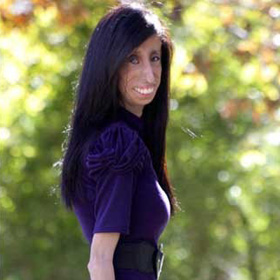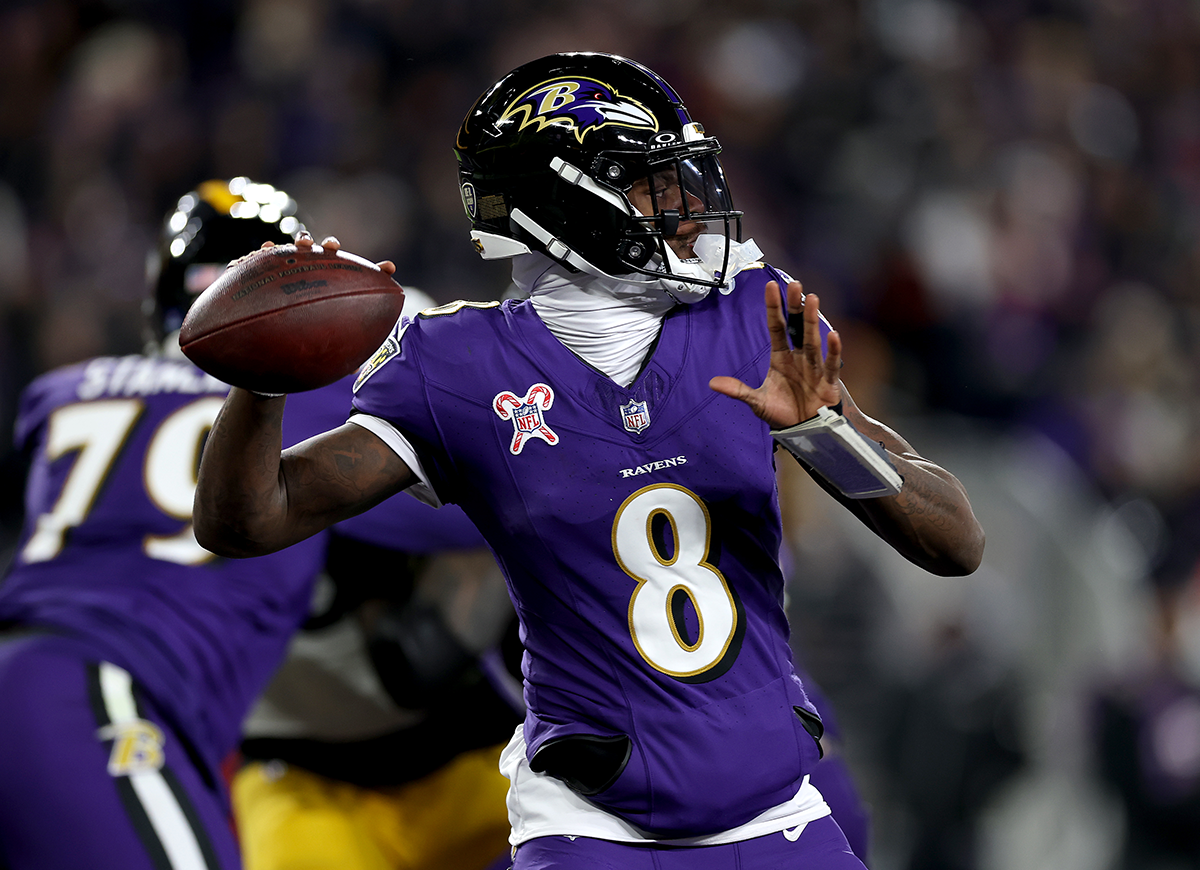Lizzie Velasquez Weighs 59 Pounds, Can't Gain Weight
Before you make any assumptions, be careful what you wish for. Lizzie Velasquez, 23, is an average senior at Texas State University — except that, at 5 feet 2 inches and barely 58 pounds, she physically cannot gain weight. Velasquez, who is also blind in one eye, suffers from a rare syndrome that prevents her from storing fat and keeps her alarmingly frail. “My stomach is so small that I can’t eat that much,” Velasquez told ABC News. “So about 30 minutes after eating I’m ready to eat again. I snack a lot just to keep my energy up.”
So what syndrome is it? Nobody knows. Only three known people have it, and no name has been attributed to it yet. “She’s missing all of her adipose tissue,” said Atul Chopra, a doctor at the Baylor College of Medicine in Houston, referring to the layer of cells under the skin that typically accumulate dietary fat. “We just don’t know why,” said Chopra, who has not been able to discover an explanation despite countless genetic tests.
Although healthy in every other respect, Velasquez’s appearance garners frequent — and unwanted — attention from peers and medics alike. “Once I got to about age 13, I kind of got tired of it,” said Velasquez of the prodding and poking by doctors. “I realized I don’t really want a cure for this syndrome. If a doctor found a magic pill or some surgery that would help me gain weight, I wouldn’t want it. All the struggles I’ve had made me who I am today.”
But it hasn’t been easy. “I felt like some sort of monster,” Velasquez said, recalling days when she was bullied in school. “I never told anyone how bad I was being picked on because I was embarrassed. When I would take a bath at night, that’s when I would cry.” Her biggest support? Her father, Lupe Velasquez, a teacher at her school. “This is Lizzie. She’s just like you guys, she just looks a little different,” Velasquez remembered her father telling the class at the beginning of every year. “It was a huge help.”
Velasquez has now successfully turned her pain into inspiration for others. With two books under her belt already, Velasquez frequently delivers motivational speeches to students, and her “It Gets Better” video has almost 2.5 million views on YouTube. “I tell everyone, ‘Even though you don’t have my syndrome, you might be able to relate to the struggles I’ve had’.” Velasquez also has a healthy support network of family and friends, who sometimes motivate her to see past the syndrome. “They often forget I have a syndrome,” Velasquez said of her friends, describing how they will distract her from onlookers’ stares. “They’ll say, ‘Don’t be so into yourself. They’re staring at us.”
RELATED ARTICLES
Get the most-revealing celebrity conversations with the uInterview podcast!


![Lizzie Velasquez And Sara Bordo On ‘A Brave Heart: The Lizzie Velasquez Story’ [EXCLUSIVE VIDEO]](/blank.gif)



Leave a comment